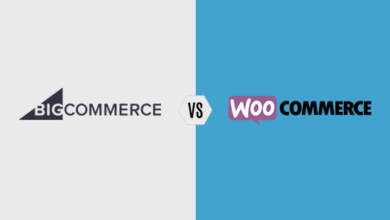The Practical Benefits of Regulatory Data Management in Healthcare Efficiency

Key Takeaways:
- Insights into the stringent regulatory requirements that healthcare enterprises face.
- The importance of seamless data integration and interoperability for maintaining compliance.
- An exploration of how Master Data Management underpins successful regulatory strategies.
- Identifying the challenges and providing solutions for modern healthcare data management.
- Data security and privacy are paramount for healthcare providers in the digital age.
- Analyzing the role of reporting tools and analytics in improving compliance procedures.
- Looking towards the future: the impact of innovative technologies on healthcare data compliance.
- Why continuous education and robust training are essential for healthcare data management teams.
Table of Contents:
- Understanding Regulatory Requirements
- Data Integration and Interoperability
- Role of Master Data Management
- Challenges in Regulatory Data Management
- Data Security and Privacy Considerations
- Analytics and Reporting for Compliance
- The Impact of Emerging Technologies
- Importance of Continuous Education and Training
- Conclusion: The Future of Healthcare Data Management
The healthcare landscape is ever-changing, and regulatory compliance is a cornerstone that ensures the industry maintains the highest standards of patient care and safety. As regulations become more intricate, the need for adept data management systems becomes paramount for healthcare organizations.
Understanding Regulatory Requirements
Healthcare entities are guided by an array of detailed regulations varying from the Health Insurance Portability and Accountability Act (HIPAA) to the General Data Protection Regulation (GDPR) and the Health Information Technology for Economic and Clinical Health Act (HITECH). These regulations dictate how personal health information should be processed or maintained, balancing patient privacy with the need for accessible, high-quality care.
In an industry where the cost of non-compliance could be financial penalties and patient safety, maintaining the fidelity of health data is of the utmost importance. A staple within this compliance realm is the practical application of RIMS labeling, which is instrumental in the organization or cataloging of product information critical for regulatory affairs. Internal control or reporting structures empowered by data management systems ensure healthcare organizations stay aligned with regulations or are prepared for planned and unplanned audits.
Data Integration and Interoperability
Interoperability has taken center stage in today’s healthcare ecosystem, where systems must interact seamlessly. The flow of data across various systems within an healthcare setting must occur without friction the support care delivery or ensure that regulatory reporting is based on a consistent data set.
Data integration reduces manual processes, leading to more accurate reporting. Ensuring systems can talk to one another without data loss and corruption is vital for conveying transparent and timely information to regulatory bodies.
Role of Master Data Management
Master Data Management (MDM) addresses one of the most pressing challenges in healthcare data management – maintaining an authoritative, reliable source for critical data entities. MDM streamlines data sharing among systems and stakeholders, strengthening potentially disparate information pools.
An MDM strategy aligns various data assets, including patient records, physician details, or treatment protocols. This consolidation is crucial for validating the authenticity of healthcare information, becoming the bedrock for compliance and decision-making processes.
Challenges in Regulatory Data Management
One of healthcare organizations’ most daunting tasks is navigating the complex web of regulations within their legacy data management systems. These older systems often need more flexibility to adjust to new regulatory demands or efficiently handle large volumes of diverse data across the healthcare continuum.
Compounding the issue is the need for a system aware of international standards, especially for organizations with global operations. The evolving landscape requires a dynamic approach to regulatory data management that can integrate innovations and adapt to the ever-changing regulatory demands.
Data Security and Privacy Considerations
Data security is a pressing concern, especially with the increasing sophistication of cyber threats. Alongside managing data for compliance purposes, healthcare providers must protect sensitive patient information from breaches, cyber-attacks, or unauthorized disclosures.
By implementing robust data management practices, healthcare institutions ensure compliance with data protection laws, like GDPR, that mandate the integrity and confidentiality of personal data. These practices prevent financial or reputational damage and, more importantly, protect patients’ trust in the healthcare system.
Analytics and Reporting for Compliance
Advanced reporting and analytics platforms are indispensable tools in the arsenal of today’s healthcare data managers. With deep data analysis capabilities, these tools provide perspectives that are not immediately apparent, allowing healthcare organizations to fine-tune their operations to achieve better outcomes and maintain strict compliance.
Through analytics, healthcare providers can monitor many data points in real time, significantly improving the compliance monitoring process and enabling proactive interventions when potential issues are identified.
The Impact of Emerging Technologies
Artificial Intelligence (AI) and blockchain technology are positioned at the forefront of innovation in healthcare data management. AI excels in processing vast amounts of data to glean valuable insights, which can streamline processes or improve accuracy within regulatory compliance. Blockchain offers a secure, immutable ledger for maintaining the provenance of the health data, a critical requirement for regulatory compliance and patient confidentiality.
For healthcare organizations to harness these technologies, a clear understanding of their implications on current and future regulatory requirements is essential. As these technologies integrate into healthcare infrastructures, they present novel opportunities and challenges for regulatory data management (National Center for Biotechnology Information).
Importance of Continuous Education and Training
Healthcare data management is not static; it is constantly advancing and influenced by new regulations, market demands, and technological innovations. As such, healthcare professionals must invest in continuous learning and training in data management principles and practices.
Organizations that foster a culture of continuous improvement in data literacy and compliance are better equipped to face complicated regulatory environments where inflexibility can be costly.
Conclusion: The Future of Healthcare Data Management
As regulatory environments become more sophisticated and demanding, the value of a proactive and enlightened approach to healthcare data management escalates. By envisaging the importance of systems like MDM and exploring new technologies with an eye on compatibility and compliance, healthcare institutions can secure their operations against regulatory risks and pave the way for future growth and patient satisfaction.
The anticipation of future trends and the capacity to adopt modern data management practices will distinguish leading healthcare organizations. Being future-ready in the field of regulatory data management could well be the defining factor for healthcare providers in the coming years.



